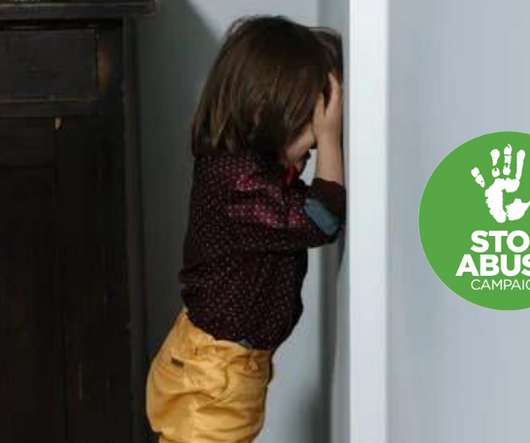ACE 101: Intimate Partner Violence
Stop Abuse Campaign
APRIL 21, 2022
Domestic and intimate partner violence are Adverse Childhood Experiences that weaken a family’s chance for emotional, psychological, and physical stability and safety. Children witnessing the harm of their parent or experiencing the violence themselves are also left with post-traumatic stress. . Create a safety plan. .












Let's personalize your content